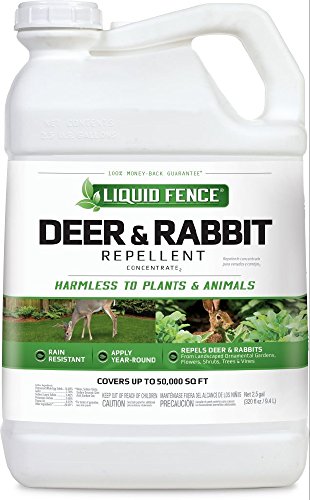Deers love to eat plants and flowers. Every flower is not good for the deers. Some are poisonous and some act as a repellent. Still, there are plenty of trees that can serve as feed for the deer.
Saving the plants of your yard and garden from the deer would be a bit tough if you plant random flowers.
Following the below tips and information regarding lilacs and if deer can have them or not would help you to choose flower plants for your yard and garden.
Do deer eat lilacs?
Most lilacs are deer resistant. Due to the strong odor of the lilac deers do not prefer to eat lilacs. Some lilacs have a pungent smell and some have a sweet smell. Meanwhile, deers can not stand anything that triggers their nostrils. Deers might damage the lilac plants instead of eating them.

Deers usually either eat plants or damage them. In the case of lilacs, deers would mostly ignore them. The smell of lilacs is capable of repelling deers. Well, no plant is safe from deers fully. If deers have no choice, they would also eat lilacs.
California lilac:
These flowers are mainly known as deer resistant. Even California lilac bushes with blooms may seem deer resistant. But deers can have them if they find nothing else to have. Small lilacs may attract the deers.
Well, California lilacs are greatly attracted by insects.
Japanese lilac trees:
Japanese lilac trees are too tall for the deer to reach. It is also accounted as deer resistant as deers do not like to eat the lilac. Well, Japanese lilacs have a sweet fragrance. The white flowers can beautify your garden to a thousand.
Korean lilac:
Korean lilacs and even dwarf Korean lilacs are deer resistant. Well, if deers reach the plants, they would not hesitate to eat them. Moreover, moths and mildew may hamper the growth of Korean lilacs.
Miss kim lilac:
These lilacs are resistant to deers but can not stand cold. Moreover, it is also disease resistant. Mildew and moths hardly affect the lilac. They exist in different sizes. You can add these plants to create a beautiful landscape.
Texas lilac:
Texas lilac is also among the lilacs which keep the deer away. These trees are tough and hard but are able to attract butterflies. Deers might not have the texas lilac yet they would rather trample the plant.
Do deer eat lilac bushes?
No, deers usually do not like to eat lilac bushes. Lilac bushes are tall and come mainly in purple color. There are also a variety of sizes and colors. If it is too tall, deer will not be able to reach it. But they can damage the plant.
Lilac bush only does not have a great appearance but also has a sweet smell.
Well, deers dislike plants that have a strong smell. They might get attracted to the lilac bush but there is a low chance that they will devour the plants. But when they can not find enough food, they would definitely have anything they find nearby even if it is lilac bushes.
Do deer eat lilac buds?
No, deers do not go near lilac buds. Lilac is not exactly disliked by deers. The appearance of the flower would easily attract any animal toward them. But, lilacs do not have plants that give off a strong smell. Though, lilac bud is not toxic yet not of deers taste.
If deers feel curious, they might try to taste the lilac buds. In general, they would rather keep themselves away from the lilac bud. They might chew it and throw it out.
Why deer eat lilac?
Lilac is not liked by deers. Neither the buds or flowers and not even plants. There are also exceptional conditions and situations which may lead a deer to eat lilac. Often they do cause harm to the lilac. Certain reasons why deer eat lilac are given below.
Curiosity:
Deers mostly are not of curious nature. They are kind of lazy. They will not eat anything which is out of their reach. They always look for foods that are nearby. Even if they find something delicious, they often do not go near them and get them.
But when they become curious, they can definitely chew the plants or flowers or even leaves. Even though they do not like the plant, they would still like to have a taste. Lilac plants are beautiful and would draw the attention of the deer.
If they come within reach of the lilac plants, they might chew them.
Scarcity of food:
Deers usually do not go near the plants they dislike. If they can smell the plants from far away, it’s even worse. They would definitely keep themselves away as possible, but especially in the cold season when they can not find food to eat, they would take anything as their feed.
No plant is safe from deer even though they call the plant deer resistant. Because deers would have anything when they are hungry.
How do you keep deer from eating lilacs?
Though deer tend to ignore lilacs, they can still trample the plants. Lilacs are usually too tall. Newly planted trees are most prone to the harm of the deer. You can keep a deer away from the lilac by following the methods below.
Using fragrance:
Using fragrance in the garden works for the deers. You can use high fragrance soaps to repel deers. You can hang a bag of soap on the bushes or a bag with garlic in it. It might help temporarily.
Fences:
There is no better solution than putting fences or walls around the garden to protect the plants from deers. As lilac plants are usually tall, you should put tall fences. Covering the area with a wall to keep the garden out of the view of the deer would also help.

Repellents:
There are plenty of repellents found that work against deers. You can even make your own deer repellent. Well, all have a strong smell which would keep the deer away.
Spraying on the lilac would help to protect the bushes as these repellents do not contain any harmful components and protect from deers as well.

Are lilac plants deer resistant?
Yes, lilac plants are deer resistant. Even harming lilac plants is not easy for the deer. Lilac plants are usually tall. Deers might not get a hold of the lilac plants. Though there are some lilac plants that are not too tall, deers still would leave them.
Lilac plants usually give off a strong smell. When the flower blooms, the smell can also vary. Meanwhile, deers can not handle strong smells. It causes them discomfort in their nostrils. Moreover, they might take a taste of the lilac plants and sometimes trample over the tree.
On the other hand, when lilac is planted, they are usually sensitive during the first few weeks. At that time, the plant might get damaged by the deer. When the lilac plant is damaged if the root still survives, the plant would survive too.
Which lilac bushes are deer resistant?
Almost all the lilac bushes are deer resistant. Lilac is not often eaten by deers. Yet if you have wild deer nearby, better to protect the bushes with fences or walls. Because they can damage the bushes. Certain lilac bushes which are deer resistant are given below.
- Wedgewood Blue lilac.
- Charles Joly lilac.
- Paul Thirion lilac.
- Common lilac.
- Texas lilac.
- Lincoln lilac.
- California lilac.
- Miss kim lilac.
- Tinkerbelle lilac.
- Littleleaf lilacs.
- Persian lilac.
- Japanese lilac trees.
- Korean lilac.
- Maiden’s Blush lilac.
Will lilacs come back after deer eat them?
Well, lilacs can come back after deer eat them. As long as the root of the lilac is safe, the lilac can grow back. Well, deer most probably would not pull the trees out from the ground.
Rather they would eat the flowers and leaves. In that case, you can still find the roots of the lilacs safely. Moreover, deers will not be able to harm the roots. They would also grow when you cut a certain length of the bush and plant it anywhere else.
Final thoughts
Overall, lilacs are often ignored by the deers. Still, there is a slight chance that they would damage the tree if they find it around. Especially when they are hungry, they might make an attempt to have the lilac. You should rather cover the area and protect it from the deer.
